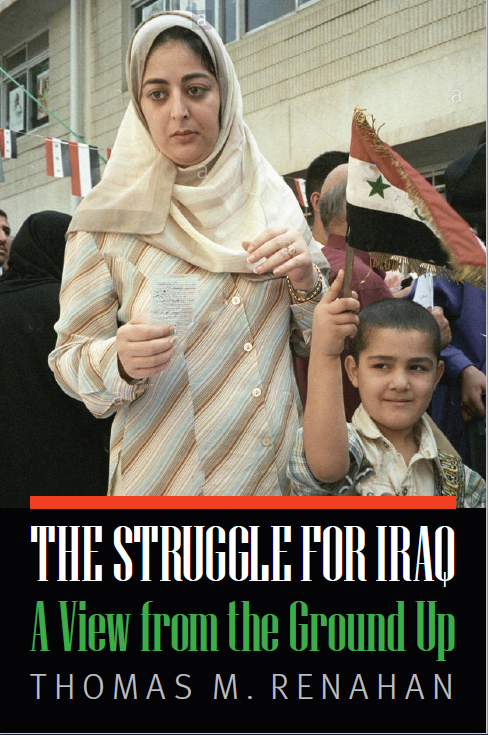Let’s imagine two teams playing each other on the same field at the same time. One is playing soccer, and the other is playing football. The soccer team is scoring as many goals as it likes; the football team is scoring as many touchdowns as it likes. Who is winning?
The game is not about goals or touchdowns, however. It’s about winning audience support.
Daesh’s media war is intended to get more recognition, to intimidate its immediate enemies, to expand its forces and territory, and most immediately to recruit as many men and women as possible, from anywhere and everywhere. The vast majority of people reject Daesh’s message, including Muslims. The real problem is the small number who don’t. If Daesh wins one-percent of its intended audience, Sunni Muslims, it will add up to thousands upon thousands of potential suicide bombers. They already seem to have an unlimited supply. Their game is extremely dangerous.
The worst thing any team can do is to play the other team’s game. The FIFA World Cup champions can’t defeat any decent high school football team in football, and the best NFL stars can’t beat any professional soccer team at soccer.
Daesh’s media game is based on three major elements: religion, hatred and violence. If we try to counter Daesh using any of these elements we will only empower its narrative. By contrast, the free world stands for many good things, but none is remotely interesting for Daesh’s supporters. Freedom? They hate it. Democracy? They consider it a blasphemy. A better life? They are blowing themselves up by the dozens every day.
One possible solution is to hire a professional team to counter Daesh’s game. But who? Daesh is the enemy of the great majority of Muslim traditional schools. Using a Shia narrative, a Sufi narrative, or even a moderate Sunni narrative will not work any better than a non-Muslim narrative. Using the Ibn Taymiya-Abdulwahhab narrative heavily sponsored by Saudi Arabia will add fuel to fire, as most of Daesh’s hatred and takfir towards other Muslims came from that narrative, and at the same time it already considers the representatives of Wahhabism in Saudi Arabia as the “Evil Empire.” So they are the enemy but using them will only empower Daesh’s narrative. So, who is left?
Daesh’s Media War (2)
So who could help us to fight Daesh propaganda?
Ironically, the only group that could compete with Daesh media using Daesh’s own rhetoric is Al-Qaeda. Al-Qaeda and Daesh came from the same origins, with similar radical intentions–but with one difference: Al-Qaeda envisions a long-term project, which makes it even more dangerous than Daesh; but we will come to that later.
Al-Qaeda online supporters can brag about its history in killing civilians without getting much objection from Daesh supporters. No one can accuse Al-Qaeda of being more peaceful or less hateful than Daesh. Al-Qaeda follows the same takfiri line and idolizes the same radical clerics.
Al-Qaeda’s target audience is the only one that matches Daesh’s media audience.
It would be an embarrassment to use Zawahiri’s anti-Daesh rants to counter Daesh, but some people think it would a good idea to draw on preachers like Maqdisi, Abu Qatada, and Hani Al-Sibai to counter Daesh messaging. But they are no better than Zawahiri when it comes to instigating hatred and violence. Recall that Maqdisi was Zarqawi’s teacher and the one who introduced him to Islamic radicalism when he was still a low-life thug in Amman; that Abu Qatada was the one who issued the fatwa legitimizing the killing of Algerian soldiers’ families; and that Sibai publicly supported the 9/11 attacks. How could anyone think that using such people will lead to anything good?
These men are producing anti-Daesh materials, but they haven’t shown any sign of retracting their previous positions. They still espouse the same hatred towards everyone, and they support violence and killing. Their opposition to Daesh should not be their ticket to further spread their poison. We are dealing with Daesh now, but it is only part of an even larger problem and these are some of radicalism’s ugliest faces. Being anti-Daesh won’t make them suddenly the “good guys.” The same thing could be said about the countless other clerics who appear in the media with similar views.
That does not mean no one is left to counter Daesh messages. However, our current messages are not that effective with Daesh’s target audience. We need to rethink the entire thing and start over.
First, let’s admit that no matter what we do or say, Daesh will still be able to recruit and attract some people here and there, and we must be prepared to eliminate them when we can. Let’s also admit that the radical Islamic rhetoric is deeply rooted and well-publicized all over the world. If all of Daesh’s recruits were motivated by religious zeal, the logical counter-strategy would be to oppose its radicalism with arguments from moderate, mainstream Islam, with frequent citations from the Quran. However, the people who join Daesh are not a cross-section of the Muslim population. Those who join do so for different reasons, and religious reasons are actually not the most important. Some of the joiners are not even practicing Muslims or are not Muslims at all. We have to analyze Daesh’s media audience more deeply in order to win the game.
[To be continued]


